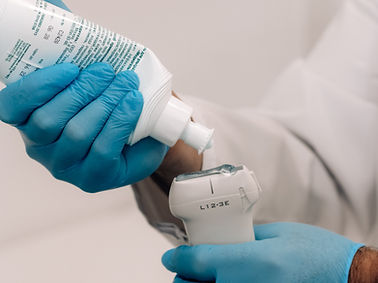
One Dose Killers
We all know about the common medications that can cause devastating injury - like acetaminophen, ibuprofen, aspirin, and so many other over-the-counter medications. But what about those 90-day supplies you may get from your mail-order pharmacy? These can be deadly at much lower doses than 90 tablets and can occur in unintentional circumstances! Come join us to discuss and review some of the lesser-known evils lurking in your medicine cabinet.
Steven Jacobson, MS, MSN, CEN, CFRN, EMT-P, CALSTAR Air Medical Services
1.5 hours CEUs
Child Maltreatment Screening in the Prehospital Setting
Emergency Medical Services (EMS) clinicians are often the first healthcare providers to assess children in potentially unsafe environments. This unique access provides an opportunity to identify early signs of child maltreatment, intervene when necessary, and document crucial findings that may impact a child’s safety and well-being. However, EMS education on recognizing and responding to child abuse remains limited. This session will explore the critical role of EMS and ED clinicians in recognizing child abuse, understanding sentinel injuries, and introducing a structured prehospital child maltreatment screening tool. By enhancing awareness and implementing standardized screenings, EMS clinicians and ED staff can help prevent further harm and improve outcomes for vulnerable pediatric patients.
Kimberly Zaky, RN Trauma Program Manager, CHOC
Makenzie Ferguson, RN Trauma Program Manager, CHOC
1.5 hours CEUs


Echos in the Field: Advancing EMS with Prehospital Ultrasound
This session offers a practical introduction to integrating ultrasound into prehospital care. Participants will review key considerations such as paramedic performance, image quality, scene time impact, and how ultrasound can support on-scene decision-making. You'll gain a solid understanding of how ultrasound images are produced and the core physics principles behind them—essential knowledge for confident use in the field. The course also highlights current research and explores future opportunities for implementing ultrasound in EMS settings. Attendees will receive hands-on practice using ultrasound on a simulated patient, building essential skills for real-world application.
Jonathan Warren, MD, US/EMS Fellow, Los Angeles County EMS Agency
1.5 hours CEUs
Prehospital Agitation: Where Are We Now?
This session provides a comprehensive overview of managing agitation in the field, emphasizing the critical role of verbal de-escalation techniques. Participants will explore the wide range of causes behind agitation and gain a deeper understanding of when and how to use sedating medications safely. The course will cover the risks and benefits of commonly used sedatives and outline an evidence-based approach to pharmacologic sedation tailored to the underlying cause of agitation. Ideal for providers seeking practical strategies and clinical insight to ensure safe, effective patient care in high-stress situations.
Robert Katzer, MD, University of California, Irvine
1.5 hours CEUs


AI in EMS
While the use of artificial intelligence (AI) to support EMS care is in its infancy, the potential to impact our field is immense. We will start by reviewing how artificial intelligence tools are developed which will provide a framework for the ensuing discussion on AI to support EMS care. We will then discuss the current state of AI in dispatch, field care, data capture and documentation, quality improvement, provider education, and considerations when implementing AI into EMS systems. Finally, we will evaluate the future of AI to support EMS care including research priorities and how AI may alter our current care models.
1.5 hours CEUs



